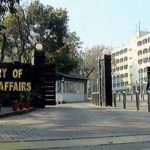ISLAMABAD, June 13 (APP): Marked with appreciation and criticism, parliamentarians from both sides of the aisle Monday continued debate
on the budget 2016-17, suggesting various measures to make it result-oriented and viable.
Participating in the budget discussion, Mehreen Razzaq Bhutto of Pakistan Peoples Party (PPP)) alleged that the government had failed to bring a national budget.
The government, she said, had missed many targets, including gross
domestic product (GDP) and agriculture growth, which it had set in
the last budget.
She alleged that oil prices had reduced in the international market, but the government had not passed their due relief to the people while it had also failed to take advantage of GSP plus to boost exports.
Mehreen Razzaq opined that the budget was presented without any
vision or planning. It was rather the budget of International Monetary Fund (IMF), she alleged.
Farhana Qamar of Pakistan Muslim League-Nawaz (PML-N) termed the
budget pro-poor and pro-economy, saying that with the passage of time it
would be known that whether the budgetary steps had a positive impact or
not.
She said revenues had increased by 16 per cent and if the trend
continued, the time was not far off when the overall collection would
reach Rs 4,000 billion.
She said earmarking Rs 800 billion for Public Sector Development Programme (PSDP) was a welcome decision as it would have positive impact
on the economy.
She lauded the government for announcing the Kissan Package, providing to farmers subsidy on fertilizers, reducing duty on pesticides
and cutting tariff for tube-wells.
Dr Arif Alvi of Pakistan Tehreek-i-Insaf (PTI) claimed that the
budget failed to address five basic areas, including employment,
health, education, housing and justice. Despite being the fourth
budget of the government, it did not have any proper direction,
he added.
He said the government had failed to bring back the money from
Swiss banks. The countries like Nigeria had brought back about
$10 billion from abroad, he cited.
PML-N’s Justice (R) Iftikhar Cheema also termed the budget
a balanced one as it had provided relief to farmers and government employees.
He drew the attention of the House towards increasing activities
of the Indian Prime Minister aimed at destabilizing Pakistan.
He also highlighted the grievances of rice farmers of his
Gujranwala area and urged the government to announce Rice Support
Price.
Participating in the discussion, Naseem Panezai of Pashtoonkhwa
Milli Awami Party said the Parliament was not being taken seriously.
At a time when India was attempting to get membership of the Nuclear Suppliers Group (NSG), she said the Pakistani parliamentarians were
engaged in mudslinging against each other in the House.
Tariq Iqbal Chaudhary of PML-N appreciated the government for
presenting a balanced budget, saying poverty had reduced while record increase was witnessed in foreign reserves.
He said Pakistan was an agricultural country and almost 70 per cent
of its population was directly or indirectly linked to that profession.
Hailing concession in power tariff for agriculture tube-wells, he
said interest free loans should be provided to farmers for converting
their tube wells on solar energy.
He also called for linking Vehari district to Motorway, besides
setting up of a medical college.
Shaikh Salahuddin of MQM said new taxes were imposed on items being
used for children, including milk, which should be withdrawed.
He said Karachi was ignored in the federal budget as no mega project
was announced for the mega city. Only Rs 1 billion was earmarked for
water supply to its people while not a single penny was allocated for Karachi Circular Railways project, he added.
He said the National Finance Commission (NFC) award issue was
still pending and tax payers were further being over-burdened rather bringing new people in tax net.
He also called for inclusion of Karachi and Sindh into China Pakistan Economic Corridor (CPEC).
Mian Tariq Mehmood of PML-N said the government had restored
confidence of investors and businessmen by bringing peace and tranquility
in the country.
He said for the first time, zero load-shedding was carried out in industrial zones to meet the exports target.
He said the government should give interest-free loans to the farmers for converting their tube-wells on solar energy.
He said the incumbent government not only continued the Benazir Income Support Programme (BISP) for the welfare of poor segments of society but also enhanced its budget.
However, he said new survey should be carried out as many deserving people were still deprived of taking benefit from this programme.
Imran Zafar Laghari of PPP said the PML-N government had failed to fulfill the promises the party had made with the people during elections.
It could not overpower the power load-shedding, he added.
Waheed Alam Khan of PML-N lauded the government for taking pragmatic steps to resolve various problems being confronted with the country.
He said owing to the government efforts, there would be no power load-shedding in the country in 2018.
He said pensions of EOBI should also be raised to Rs 10,000 per month like raise in the salary and pensions of other government employees.
Dr Shireen Mazari of PTI said National Anti-Counter Terrorism Authority (NACTA) was not yet fully operationalized and limited amount was allocated for the important organization, which had a key role to counter terrorism
in the country.
She said the people were facing hours long power load-shedding.
She said the foreign policy had also failed to bring any positive
change and project the country’s image.
Participating in the discussion, Muhammad Ashraf Dhandla lauded the government for putting the economy on the path of stability. The budget,
he said, was poor, labourer and people-friendly.
Dhandla urged for unity among the political parties to cope with the challenges being faced by the country.
He said farmers had been facing hardships and the package announced
by the government would help mitigate their problems. Duties on agriculture machinery should be reduced and the farmers be provided uninterrupted
electricity supply, he added.
He demanded the government to announce a package for the farmers of
Thal, who had been dependent on rains to cultivate the only crop of
gram pulse.
Aftab Ahmad Khan Sherpao criticized the government for not announcing the NFC award.
He alleged that Khyber Pakhtunkhwa had been deprived of its 2 million
acre feet water share since 1991. The negative growth of agriculture
sector was result of these imbalances.
He claimed that the KP was deprived of its gas and power royalties
while 40 per cent industrial units in the province had been closed due
to industrialization policy.
He said there was no proper distribution and transmission system,
which had been resulting in loss of electricity and depriving the people
of the basic facility.
Sherpao said major power projects under Pakistan China Economic
Corridor (CPEC) were located in Punjab and Sindh, while the KP
had great potential for hydel generation, which should not be exploited.
He urged the Planning Commission to forward the KPK power projects
to be included in the CPEC so that cheap electricity could be produced
and provided to the people.
He also urged the government to take measures for merging FATA in the KP.
He said efforts should be made to resolve issues with Afghanistan peacefully to lead the region towards peace and prosperity.
Sahibzada Faiz-ul-Hassan lauded the government for presenting a
balanced budget. The prudent policies of the government, he said, were bearing fruits as the foreign exchanges reserves had increased
considerably.
He said some 10,000 mw of electricity would be included in the
national grid system by 2018 to rid the country of load-shedding.
He appreciated the Prime Minister and Finance Minister for announcing special package for the farmers in the budget. However, he called for providing solar pumps to the farmers to further boost up agriculture.
He also called for writing off agri loans.
Taking part in the discussion, Dr Ramesh Kumar said public
investment had witnessed 10 per cent increase during last one year
while inflation reduced to single digit.
He said the BISP was supporting over 4.5 million people. The
government, he said, had revived Pakistan Railways as evident from
the fact that the passengers had to wait for online booking.
Dr Ramesh Kumar said fiscal deficit had also been brought to
3.3 per cent. The government had also curtailed power load-shedding
and allocated hefty amount for mega projects, including Diamer Bhasha
and Dasu dams, he added.
Murad Saeed of PTI said the government failed to achieve targets
during the current fiscal year. Unemployment ratio had increased,
he alleged.
He said the government should ensure implementation of
minimum wage of Rs 14,000 fixed for labour.
He alleged that the foreign investment in the country had declined
and the government was depending on borrowing.
Murad Saeed claimed that 18-20 hour power load-shedding was being carried out in many areas of KP, particularly Swat. The KP, he said,
was a major contributor to power generation.
Despite 100 per cent recovery, he claimed hours long load management
was being observed in Swat.
Amra Khan of PML-N appreciated the government for presenting
a pro-people and relief-oriented budget for next fiscal year.
She said work on all the projects had been expedited so that the same
should be completed as per their schedule time.
She said CPEC would be a game changer in the region as it would
usher a new era of progress and development in the country. She urged
that a women university should be set up in Pakpattan.





